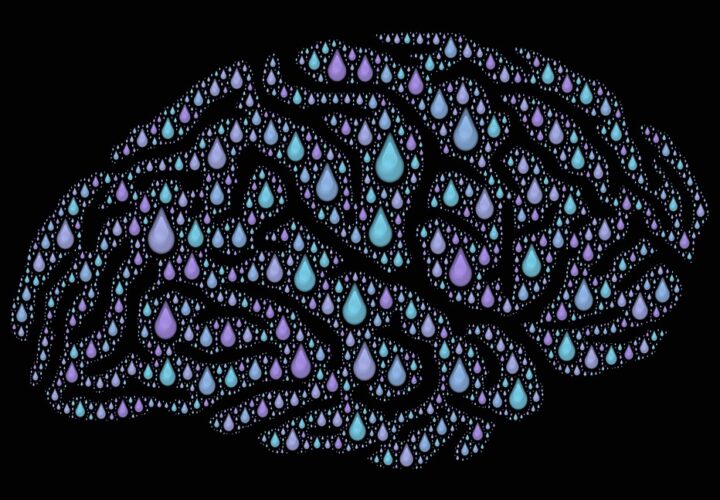Countless times during my 35 years of studying and treating brain disease, I have sat across from patients who became gripped by the fear that they may be losing their minds and their identities. Fear of Alzheimer’s disease and other dementias has become so deeply ingrained in our society that they believe — wrongly — that a dementia diagnosis might as well be a death sentence.
So, I was quite disappointed, but not really surprised, to read the findings from the recent Alzheimer’s Association’s 2019 Facts and Figures report, which showed that only half of seniors are being assessed for thinking and memory issues, and even fewer are receiving routine assessments. This is despite a strong belief among seniors and primary care physicians that brief cognitive assessments are important for early diagnosis and potential treatments.
Annual cognitive assessments are a required component of the Medicare Annual Wellness Visit, but findings from the report show that only one in three seniors are aware of this. The survey also found that, while the vast majority of seniors are routinely checked for blood pressure, cholesterol, and other health factors, only one in seven (16 percent) say that they receive regular cognitive assessments during routine checkups.
Related: Cognitive Tests Are Key to Early Dementia Diagnosis But Doctors Aren’t Screening
This must change. The economic, social, and personal cost of dementia is so enormous, and the overall quality of our nation’s dementia care is so poor, that we as a society can no longer afford to turn a blind eye to this growing crisis.
Consider this: an estimated 5.5 million Americans have Alzheimer’s and related conditions, and that number is expected to double by 2050. The total cost of dementia care (not including care provided by family and friends) in the U.S. has already reached $259 billion as of 2017 — a greater financial burden than cancer or heart disease, and individuals and families were forced to pay more than $50 billion of that out-of-pocket.
The Majority of Dementia Patients Die Without a Diagnosis
The saddest statistic, though, is that more than 50 percent of people with dementia will die without their condition ever having been diagnosed and discussed with them or their families. Those individuals and their caregivers are robbed of the benefit of detection of such an important health issue, never receiving the knowledge and education that could ease the financial and psychological burdens they carry.
Inappropriate medication use, emergency room visits, hospitalizations, and unnecessary medical and surgical interventions, along with the extraordinary cost of misguided care, could be avoided, and countless burdened caregivers could be spared from intense stress, depression, and other serious negative health effects.
Why Early Diagnosis of Alzheimer’s and Dementia Is Important
Diagnosis, preferably earlier in the disease course, can truly be a blessing. Patients and families can finally stop the ceaseless searching, fruitless testing, and needless referrals to find an answer.
Education and support can assist the patient and family in finding the best treatments, avoiding harmful and unnecessary treatments, learning to manage symptoms, and planning for the future by establishing wills, proxies, advance directives, and long-term care plans.
With Dementia Screenings, Doctors Don’t Always Ask the Right Questions
With older patients, many primary care physicians don’t have the experience, the training, or the time to get into meaningful cognitive assessment. Some will simply ask older patients, “How’s your memory?” but many don’t think to ask about it at all. I don’t blame them. Modern medical practice is extremely demanding and time-consuming, and many doctors aren’t inclined to probe too deeply to unearth problems that may not be immediately evident.
Just broaching the subject can cause volatile reactions among some patients I see. “What do you mean you’re concerned about my memory? Why are you saying this? My memory is fine!” I tell my patients I just want to hear how they are doing and whether they’ve had changes over time, and then marry that with a cognitive assessment. I use the phrase “looking under the hood.”
What Routine Cognitive Assessments Should Look Like
Cognitive assessments don’t have to be onerous. It can begin with a simple three-minute “Mini-Cog,” where the person is asked to repeat and remember three common words (for example, pony, quarter, orange); then to draw a picture of a clock, with the hands marking a specific time. They are then asked to repeat the three words. Their ability to do so is a strong indicator of whether they have mild, moderate, or severe cognitive impairment. If necessary, we would then move on to more comprehensive testing of brain function, after which a more specific diagnosis can be made.
Related: Alzheimer’s Tests: What Tests Are Available and How Accurate Are They?
You’ve Been Diagnosed With Alzheimer’s. Now What?
Of course, the actual diagnosis of Alzheimer’s or dementia is initially devastating for most of my patients and their loved ones. They can go from zero to 100 in one second, and in that moment of raw panic they will think or even say out loud, “I might as well kill myself.” The only antidote to this terror and hopelessness is to try to “normalize” dementia by emphasizing that it is fundamentally like other chronic diseases.
With my patients who are in the early stages of dementia, I calmly address the points that, although this seems like a scary diagnosis at first, this is not an emergency, and that we have a wide range of medical and non-medical interventions to deploy.
Dementia Is a Chronic Illness That Can Be Managed
I try to explain that every human being is likely to contract a chronic illness at some point, unless we get hit by a truck. I tell them that dementia is one of many chronic illnesses like diabetes, arthritis, or heart disease, and we now know a lot more about how to manage it than previously.
I also explain how the illness can simmer for years or even decades, and that we have people who live a long time with Alzheimer’s with a very good quality of life. I tell the patients that we will be optimizing their safety, their dignity, their independence, and their enjoyment of life. I stress that we will work with them over the long haul; that we’ve got their backs.
Related: What It’s Like Living With Dementia: One Woman Shares Her Story
For some people, it may sound hard to believe, but a calm conversation with my patients can give them a fuller context for Alzheimer’s, they can quickly begin to settle down and begin to face their future with realistic optimism.
The fact is that we have learned many new ways to better understand dementia patients’ behaviors and help them avoid injury, delirium, and psychiatric emergencies. We are pursuing some promising new clinical trials aimed at prevention and treatment. This is not your “Grandma’s Alzheimer’s” anymore. This is a chronic disease, and we know a lot about how to manage it.
But to truly help this large and growing population, we as a society — our health officials, medical schools, doctors, families, and patients — all have to learn that we must be willing to ask the difficult questions before we can face and overcome the fear.
Read Next: You Think It Might Be Dementia. Here’s What to Do Next






Thanks for the very important article.
I am a Dementia and Alzheimer’s in home, assisted living, or independent care provider.
I feel it is so sad to see what happens, as you are right, our society has put a label on these people. We all have issues. Cancer is or could be terminal as well. People diagnosed with Cancer are told “we are so sorry is there anything we could do”
I want to add one thing to those with any stages of any kind of Dementia, including the largest one “Alzheimer’s”, please do not ignore them. They may not be able to talk, but they are still living. We do not know what is going on if anything in there brains. One of the largest areas of Dementia and Alzheimer’s I deal with is lonliness and isolation, as none of their friends call anymore, but I want to say, please do your best to continue to show you care, be it a card with a happy face, anything. As a caregiver, I am setting up a company that provides 2 – 4 hours for the companionship that they don’t get (most do not get), and I apologize to those that are there 24/7 with your loved ones or a paid caregiver. I see what goes on in homes, and all over and this is the reason I changed my career mid life to make sure these people know they are loved, and held hands or hugged by me. Thank you for listening. I hope we are soon to a cure. Eat Right, and Exercise, and do not drink alcholol. In memory of Catherine Ann Smith (1926 – 2016) my dear mother, that led me to this career after her 12 year disease ended in peace.